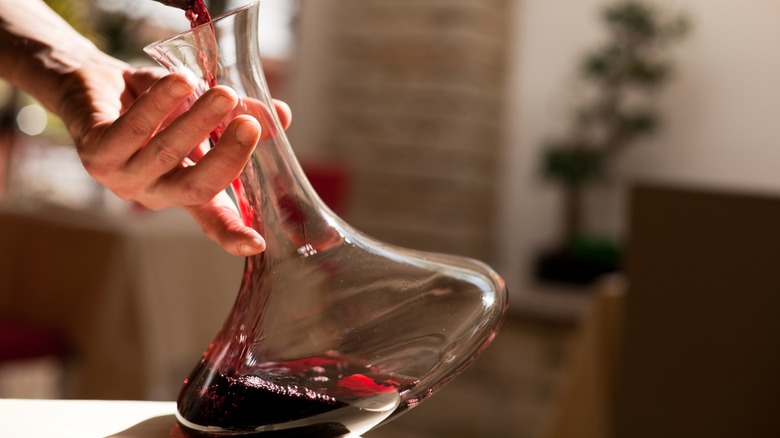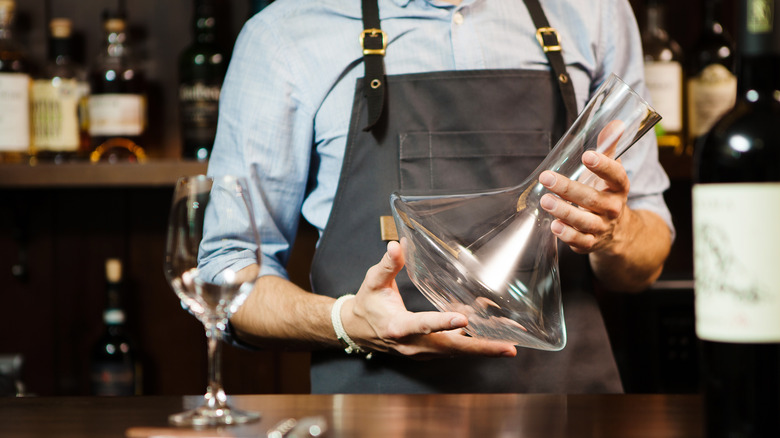Never Use Soap To Clean Stained Wine Decanters
For many wine drinkers, a stylish decanter is brought out of its box or corner of the highest kitchen cabinet for special occasions and parties. Sure, they are functional, allowing a bottle of wine to "breathe" inside the roomier contraption, which essentially enhances the flavor, but they glass vessels are also statuesque, shiny, and beautiful — probably because they stay hidden away most of the time.
However, when the party's over and it's time to wash the decanter before storing it away for another long stint of time, it's important to know there are very specific ways to do so. Most people might clean the decanter like they do other glassware; that is, carefully and with dish soap and warm water. But, as it turns out, this is definitely the wrong thing to do.
The issue is residue. Most dish soaps contain chemicals that are left behind on dishes and glass, even after rinsing them thoroughly. In addition, dish soap can leave trace flavors on whatever it "washes," including decanters. You can see how this is not ideal for a piece of glassware that is intended to amplify the flavors in a bottle of wine; no one wants the essence of dish soap mingling with their dark cherry, leather, and vanilla flavor notes. Fortunately, there are several ways to get your decanter clean and sparkling without using a single drop of soap or detergent.
Kitchen staples make great cleansers for decanters
The first thing you'll want to do to clean your decanter is to rinse the empty vessel with hot (but not boiling) water. This will wash away any remaining drops of wine left behind. Next, pour a mixture of white vinegar, water, and ice inside the decanter and gently swirl the mix around. The ice will help scrub away any stubborn, dried-on wine residue and the diluted vinegar works as a natural cleanser. If you need to scrub further you can use a clean, flexible scrubber that will bend into any hard-to-reach spots. Rinse with hot water and let the carafe dry upside down on a drying stand.
Crushed ice and salt will also do a good job of getting rid of wine stains from the interior; so will decanting beads, which resemble metal bb pellets. With both methods, rinse the decanter well with hot water and let it air dry. Consider the durability of the vessel as well before you decide which method to use for cleaning. Some are made with very thin glass, so it would probably not be the wisest idea to vigorously swirl and shake ice cubes around inside it. For thin glass, you can substitute uncooked rice for the ice.
To avoid vigorous scrubbing altogether, try to clean your decanter soon after it's been emptied of wine, long before it has a chance to dry onto the glass in the first place.


